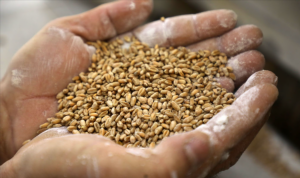Stewart Forsyth: Who would be a female expert during a pandemic?
OPINION
Deepti Gurdasani of Queen Mary University of London is a clinical epidemiologist and has taken on a role of public educator about Covid-19.
For her efforts, she has been trolled – abused and threatened online.On the October 15 BBC podcast Science in Action, Gurdasani describes other women scientists who have “gone silent” because of the abuse they’ve experienced.
What motivates this abuse? There are two clear themes. A distrust of science and aggression against women who don’t conform to traditional gender roles.Women scientists get it both ways.
Doubt about science and scientists is a consistent theme for those who subscribe to the alternative reality of conspiracies.
That’s not only in America, it’s also true in New Zealand.
Researchers John Kerr and Marc Wilson surveyed people in both countries.Those attracted to conspiracy beliefs (such as unsafe vaccines) don’t like science. And they don’t get science – they don’t do well on a simple test of scientific knowledge (sample question: Electrons are smaller than atoms – true or false).
These people are very likely to think and act in consistently “authoritarian” ways.They could be described as subscribing to authority, beliefs and conformity.In contrast to the challenging view of the scientist – doubting, evidence-based and checking the facts.
Those with an authoritarian mind-set have fixed views about gender roles.
An illustrative study by Andrew Christopher and Mark Wojda found that authoritarians subscribed to a view that women should conform to traditional roles (sample item: An employed mother presents problems for her children).
A local example is the attacks on Associate Professor Siouxsie Wiles – microbiologist, science educator, 2021 New Zealander of the Year, and subject to ongoing abuse for speaking out in her area of expertise.
In an October 2021 Nature survey of scientists who have commented on Covid-19, 15 per cent of 321 respondents said they had received death threats.More common were attacks on credibility (60 per cent), and threats of physical or sexual violence (22 per cent).
You’ve got to respect the scientists, particularly women scientists who keep putting the facts out there.
• Stewart Forsyth is an organisational psychologist and executive coach and also the author of “21 Remarkable People” – available from Amazon or Apple or other eBook sources.
Source: Read Full Article

/cloudfront-ap-southeast-2.images.arcpublishing.com/nzme/T2K7LNEWWNBQOTBCBAIMY65AEA.jpg)
